- Home
- Roy J. Snell
Riddle of the Storm Page 14
Riddle of the Storm Read online
Page 14
CHAPTER XIV DREW LANE ON THE WING
During that week there had been no cessation of activities in the twocamps where the search for rich mineral was in progress. Since it hadbeen found that the report on the radium-bearing pitchblende must bedelayed for some time, there was nothing for it but to go out in searchof other prospects.
The entire group at Joyce's camp, her father, Jim, Lloyd and Clyde,worked like beavers. Lloyd had gone to get the thawer. He had returned infour days.
"I miss him more than I dreamed I would," Joyce had told herself on oneof these days. "He seems to confide in me. And that, I guess, is the sortof friend a girl needs."
Indeed, for a quiet man he had told her much. On that evening before heflew away to Fort Resolution, he had spoken of his life, his struggles,his hopes, his fears. He had entered the world war as a boy soldier, onlysixteen. He had carried stretchers through it all, had brought many apoor wounded soldier to safety. In time he, too, had been dropped by ashell. His recovery had been slow. But he had come back.
"And now," he told her earnestly, "I must make good; for my mother's sakeI must! She is the grandest of women; gave me as a boy to her countrywithout a murmur, and allowed them to keep me four years. Four years. Youdon't know what that means--to a mother."
Ah, yes, Joyce had missed Lloyd. But now he was back. They were all back.Lloyd's steam-thawer had been going for three days. What success had cometo him? Would there be gold on that ancient river bed?
She was thinking of all this as she stood bare-headed in the starlight ona glorious Arctic night. Then the night claimed her. The moon was not up.But the stars! Every one of them seemed a spark of fire fallen upon acurtain of midnight blue velvet.
"They burn, but they do not consume," she thought, as she moved slowly upthe hill toward the place where the white foxes played. "Stars are likeour love for our fellow men and God. They light the world, but do notdestroy."
She had come close to her watching place at the back of a cluster ofscrub spruce trees, when a voice close beside her drawled:
"What are you all doing up here by your lonesome?"
It was Jim, the Kentucky mountain boy. Her first impulse was one ofanger. Why should he intrude upon her privacy? This lasted but for aspace of seconds. The night, the stars, the yellow lights from the cabinsbelow, together with Jim's appealing southern drawl, changed herimpatience.
The rebuke that came to her lips remained unuttered. Instead, she held upa hand for silence, then pointed toward the clump of trees. Then togetherthey crept forward.
"There! There they are!" she whispered low.
"Foxes!" he whispered back. "Cunnin' little critters!"
After that for ten minutes, with the golden firmament swinging overheadand the foxes frisking in the starlight, they watched in silence.
The foxes were more playful than ever. Joyce had hung some pieces ofcaribou fat and shreds of white fish out for the snow-buntings andbluejays. Some of these bits were within reach of the foxes when theystood on their hind feet and clawed upward. Others were hung higher. Thelower ones soon vanished. It was truly wonderful to see the antics theywent through in their attempts to reach the others. They leaped, theyclawed. They did everything but stand upon one another's shoulders. Whennone of these availed, they sat on their haunches and, pointing noses atthe tempting morsels, sang their white fox song.
"As if that would do any good!" Joyce chuckled.
"Singin' for their supper," drawled Jim.
One thing puzzled Joyce. To-night there were only two foxes. Alwaysbefore there had been three. The small one was not there. Where could hebe?
"Perhaps he overslept," she told herself. But she was a trifle worried.These little wild playmates had become very dear to her heart.
Frightened, suddenly, by the slamming of a door down below in one of thecabins, the two foxes scampered into their holes, leaving Joyce and Jimalone with the night.
"They've gone in for the youngster, I guess," Joyce laughed.
"The youngster?"
"Always before there have been three. The other was only a cub, or wouldyou say a kitten? He is the cutest thing you ever saw."
After that, having turned about to seat themselves on the hard packedsnow and to gaze away toward the great white world and the blue domeabove it, they communed in silence.
A faint glow appeared on the margin of that sea of white. The arc of agolden circle appeared. Moving in solemn majesty, the moon rose to clothetheir world in purple shadows.
"This," whispered the girl, "is moonlight in the great white world."
"Do you know," said Jim, and there was a deep seriousness in his tone, "atime like this makes me certain that thar's more to life than that tharwe see. We don't live to fret and fuss a little, to hunt gold and find itand be rich fer a little spell, or not to find it and be poor as p'ison.We don't just shuffle off. That's not the end of it.
"Look at those stars, that moon. Don't they tell you things?"
"Yes." Her voice was low, musical. "Yes, Jim, they do."
"Do you know," he went on after a moment, "we mounting folks is ignorantfolks, I reckon. Not much larnin' amongst us. But we sit a heap. And wethink a heap. And when we see a thing or get told something we justnaturally gotta try to think it plumb through to the end.
"Do you know?" He was looking away once more. "When I look away at themthar stars, hit reminds me a heap of my old Kentucky home away up onPoundin' Mill Creek that flows into Clover Fork of the Cumberland River.
"Way back yonder--" His voice was like the low strum-strum of a banjo."Back yonder's a cabin whar I've set many's the night, listenin' to thetree toads sing and some old bull frog croakin', and seem' the lightnin'bugs streakin' across the air. Then I'd see the mountings all settin' ina row like a lotta plumb big folks settin' by the hearth a-whisperin'.And I'd see the stars a-comin' down close to listen. And it was plumbpretty, Miss Joyce. Plumb pretty. Mighty nigh the prettiest picture Imost ever seed.
"But, Miss Joyce," he leaned forward, "'t'ain't no prettier nor this hereup here. And, you know," he hesitated, "you know, somehow you sort of fitinto it all. Plumb queer now, ain't it?"
"Yes, Jim, it is." Joyce felt a strange thrill run through her being. Itwas strange that she, a girl who had spent all her life in a great city,should fit into a picture such as this. She was grateful for thecompliment.
After that, for a long time, they sat in silence, listening to the faint,all but inaudible sounds of an Arctic night and watching the world thatseemed so new, so fresh, so ready for those who were good and kind andtrue. Can souls speak, though no words be uttered? Who knows? Joycewondered, but did not speak.
It often happens that we go from joy to sorrow in a single hour. So itwas with Joyce. Her hour with Jim had been one of transfiguration. To gofrom communion with a human companion to seek a four-footed friend mightseem the imperfect ending of a perfect hour. But who can understand theheart of a girl?
Joyce was still wondering about the half-grown white fox. Why had he notcome out to play?
She was not long in finding the answer. As they stepped into the moonlitplayground of her little white friends, Jim's keen eyes discovered a darkobject. It was a steel trap. And in the trap was the baby white fox,quite dead.
"Who could have done that!" Joyce exclaimed, all but in tears.
"Some trapper."
"But there are no trappers here; that is, I have seen only one." Sherecalled the stranger she had followed by mistake.
"We'll leave him a message," said Jim.
Springing the jaws of the trap, he caught it by its chains, then crashedit so violently against the rocks that it flew in bits.
"No right to set it so close to our camp!" he grumbled, throwing it down.
"They say that Indians read signs. Well, there's my sign." Selecting anuntouched circle of snow, he placed there an imprint of his largemoccasin.
"And this," said Joyce, placing her foot close to
his, "is mine."
At that, without another word, they turned to make their way down thehill.
It was when he was about to leave her at her cabin door that Jim spokeagain.
"Thar's somethin' been on my mind for a long time, Miss Joyce. I--"
"The stolen films," flashed through the girl's mind. "It was Jim. Hestole them. He wants to confess. But I can't let him now--"
"Please, Jim," she broke in hurriedly, "not to-night. Tell me some othertime, but not now."
"All right, Miss Joyce." And he was gone into the night.
Joyce stood there alone, allowing the cool night air to fan her hottemples. She was troubled. Had she done wrong? Should she have allowedthe mountain boy to make his confession?
"I couldn't," she told herself at last. "This has been a golden hour. Howcould I have it ruined? Another time will do as well." At that she turnedand entered the cabin.
* * * * * * * *
Strangely enough, at this very hour in their far away cabin, anothergroup was discussing the stolen films.
After long thought Johnny had decided that it was his duty to tell themen of his camp the story of the stolen films and of the men who at thatmoment were using their hard-earned leads for profit.
"Old Timer," Scott Ramsey was saying to Sandy, as they sat beside theroaring fire, "do you think it would be too hard on those fellows to moveright in and file on their land the moment they make a strike?"
"Not one whit!" Sandy's chair came down with a bang. "Trouble nowadaysis, too many folks have vague ideas of what's honest and what isn't. Getwrong notions, lots of them, when they're in school. Steal ten dollars,that's wrong; but snitch another chap's toy pistol, that's sport. That'sthe way they look at it. It's all wrong.
"Lots of young football fellows think it's being bright to carry homesouvenirs, napkins, salt-shakers, silver from a restaurant. It's wrong!Hew to the line, I say.
"If those young fellows think it was a sporting proposition to filchthose negatives and make prints from them and then come up here with themto hunt gold, they're wrong.
"But say!" he demanded suddenly, "how'd they get them?"
"That," replied Ramsey slowly, "is just what I don't know.
"You see," he went on thoughtfully, "after I'd taken the airplane tripand snapped the pictures and had them developed and enlarged, I was lowon funds. I showed the pictures to a geologist and he said the thinglooked good.
"While I was searching for a partner with money, I asked permission tostore those films in a vault, the vault of the people I had worked for inWinnipeg.
"When I found you in Edmonton, I had the pictures, but not the films. Oneset of pictures was enough. The films, I thought, were safe."
"But how did you find out they had the films?" Sandy asked, turning toJohnny.
"I ran onto a photographer I knew in Edmonton. Always did like to bearound where you smelled developer and hypo, so I stuck around. He showedme some defective enlargements he was about to throw away. I knew rightaway that they were the same as some we were planning to use. After thatit was a fairly simple matter to trace the men who had engaged him tomake the enlargements. The thing that surprised me most was that two ofmy best friends, an old man and his daughter, are working with thosethree young men."
"You can't get information through them?" Scott asked.
"I can, but I won't," said Johnny.
"Right enough!" exclaimed Sandy. "I honor you for it."
"The thing I can't understand," said Sandy after a time, "is, how didthey get hold of those films if they were in a vault?"
"That _would_ bear looking into," agreed Ramsey. "I'll write a letterto-night. Old Benny Brooks is still with the company, or was the last Iknew. I'll write and ask him." He did. But even in the days of theairplane, mail is a trifle slow in the North. And in the meantime thesearch for that elusive wealth that lies hidden in the rocks and beneaththe snow went on.
* * * * * * * *
It was about this time that Curlie Carson, on returning from his trip tothe mouth of the Mackenzie River, received a telegram that set his headwhirling.
"_Am on my way by fast plane. Big business._" This is the way the messageran. It was signed "_Drew Lane_."
This telegram, together with a paragraph in a back number of the Edmontondaily paper, gave him what appeared to be a solution of the mystery whichthe "Gray Streak" had created. The article was captioned:
"Mail plane stolen from Chicago Airport."
In brief, this new story told of the theft of a powerful biplane frombeneath the very nose of her pilot. Having taken on his load of air mail,this pilot had stepped into the office to discuss his routing with hischief. Then, according to the story, the look-out in the tower, whochecked the numbers of all planes coming and going, had seen some oneresembling the pilot enter the plane and take off.
"The strangest part of the whole affair," the story went on to say, "isthat, after a somewhat prolonged conversation, the real pilot returned tothe spot where his plane had stood, and it was gone. It is assumed by thepolice that the man who stole the plane, having studied the dress andmannerisms of the pilot, had been able to imitate him so perfectly thatthe look-out, who knew him well, had not discovered the fraud.
"In the meantime," the article concluded, "Where is the stolen biplane?And where is the half-ton of mail, some of which is reported to be ofgreat value, that was the airplane's cargo?"
"Where indeed?" Curlie said after reading the article through twice."Unless here in the wilds of the Northwest? Where else in the world coulda great biplane be hidden? And where else could they refuel without beingcaught?
"Let me see." He scratched his head. "It was six days ago that I wroteDrew Lane telling him of the mysterious 'Gray Streak.' Plenty of time forhim to get his keen mind at work on that Chicago airplane case, to arriveat some very natural conclusions, and then to get himself assigned to thetask of hunting down this 'Gray Streak.'
"So," he drawled slowly, "I am to have some assistance in the solution ofthis great mystery."
Was he glad Drew Lane was on his way north? Ah, yes, to be sure he was.Who would not be? Drew Lane was the sort of chap any one would be glad togreet once again. But was Curlie glad that some one else was likely tobeat his time in solving a great mystery? Of this he could not be sure.
"And yet," he told himself after a few moments of sober thought, "at sucha time as this, when the rightful possessions of many are endangered,when the efficiency of the air service that has done so much for thisbarren land is threatened, it is one's duty to set his personal hopesaside and to welcome the aid of any who may assist in bringing themalefactors to justice. So, welcome, Drew Lane, old top! Our arms areopen wide.
"And one thing is sure," he added after a moment's reflection, "therenever was a truer sport, a braver cop, nor a better pal than Drew Lane!
"Brave! Why he'd drop right down upon them from the air if need be."
How near this last came to being prophecy, he was, in time, to know.

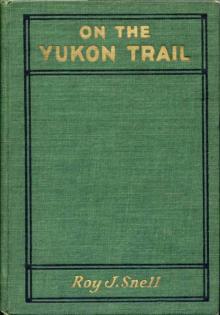 On the Yukon Trail
On the Yukon Trail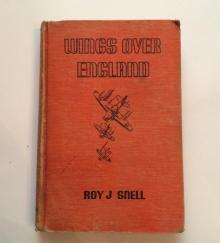 Wings over England
Wings over England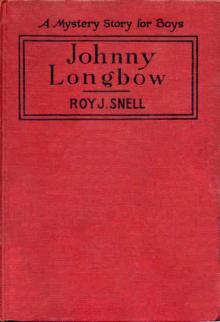 Johnny Longbow
Johnny Longbow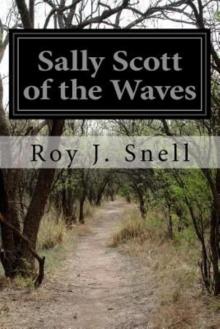 Sally Scott of the WAVES
Sally Scott of the WAVES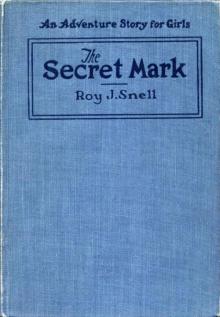 The Secret Mark
The Secret Mark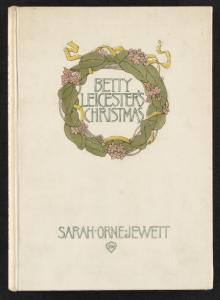 Betty Leicester's Christmas
Betty Leicester's Christmas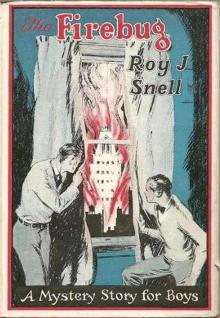 The Firebug
The Firebug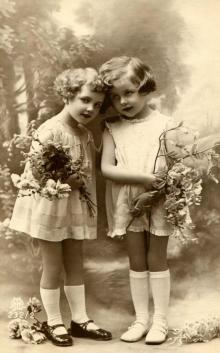 Minnie Brown; or, The Gentle Girl
Minnie Brown; or, The Gentle Girl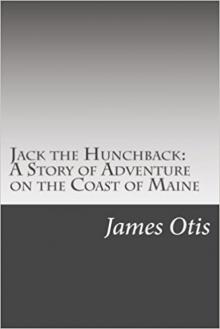 Jack the Hunchback: A Story of Adventure on the Coast of Maine
Jack the Hunchback: A Story of Adventure on the Coast of Maine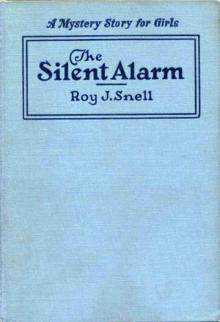 The Silent Alarm
The Silent Alarm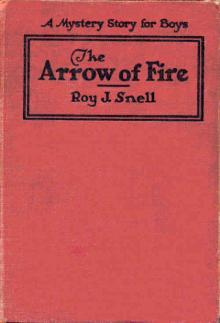 The Arrow of Fire
The Arrow of Fire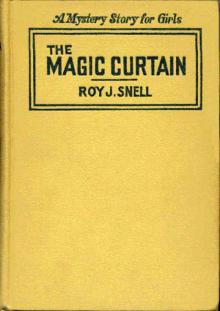 The Magic Curtain
The Magic Curtain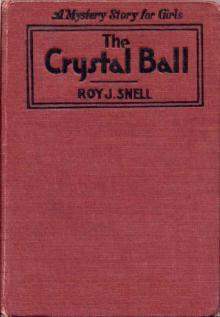 The Crystal Ball
The Crystal Ball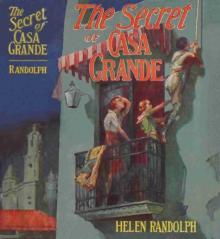 The Secret of Casa Grande
The Secret of Casa Grande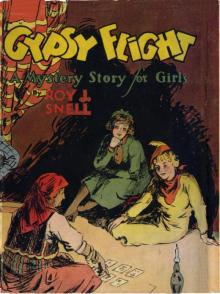 Gypsy Flight
Gypsy Flight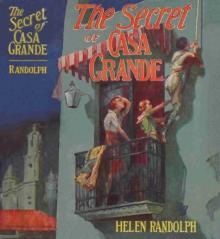 The Mystery of Carlitos
The Mystery of Carlitos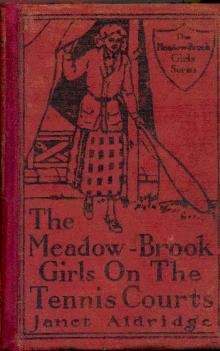 The Meadow-Brook Girls on the Tennis Courts; Or, Winning Out in the Big Tournament
The Meadow-Brook Girls on the Tennis Courts; Or, Winning Out in the Big Tournament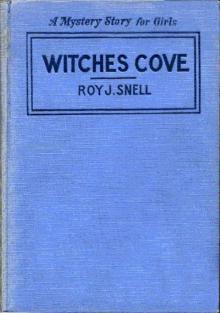 Witches Cove
Witches Cove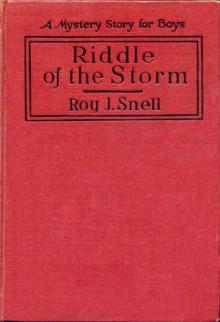 Riddle of the Storm
Riddle of the Storm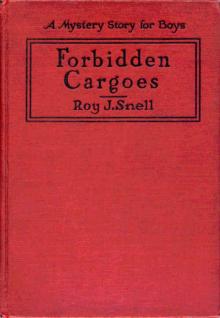 Forbidden Cargoes
Forbidden Cargoes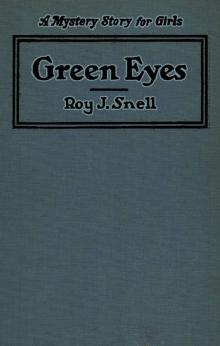 Green Eyes
Green Eyes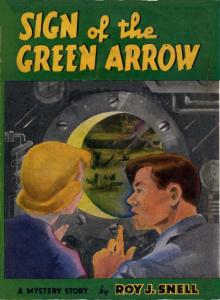 Sign of the Green Arrow
Sign of the Green Arrow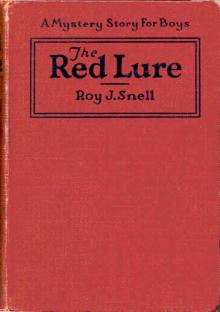 The Red Lure
The Red Lure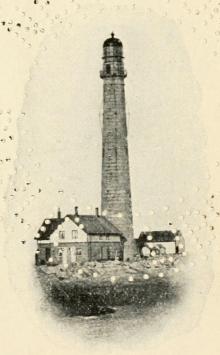 The Light Keepers: A Story of the United States Light-house Service
The Light Keepers: A Story of the United States Light-house Service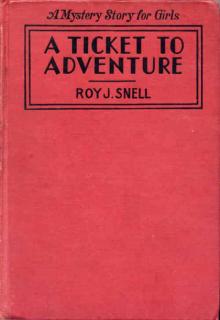 A Ticket to Adventure
A Ticket to Adventure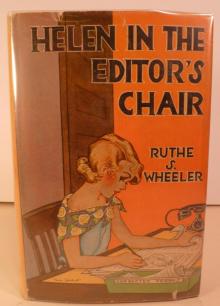 Helen in the Editor's Chair
Helen in the Editor's Chair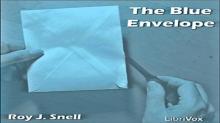 Blue Envelope
Blue Envelope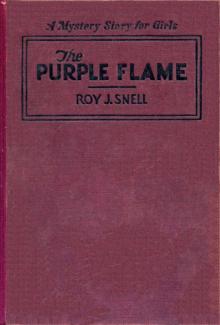 The Purple Flame
The Purple Flame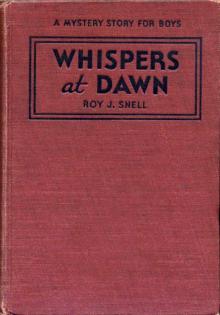 Whispers at Dawn; Or, The Eye
Whispers at Dawn; Or, The Eye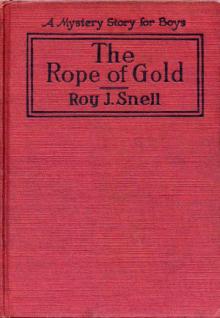 The Rope of Gold
The Rope of Gold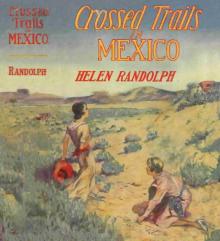 Crossed Trails in Mexico
Crossed Trails in Mexico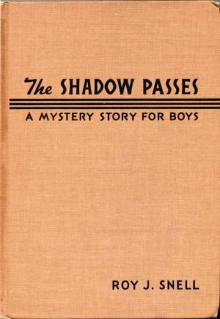 The Shadow Passes
The Shadow Passes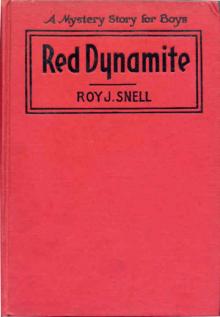 Red Dynamite
Red Dynamite Blue Grass Seminary Girls on the Water
Blue Grass Seminary Girls on the Water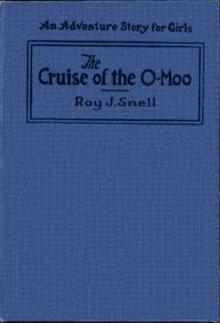 The Cruise of the O Moo
The Cruise of the O Moo